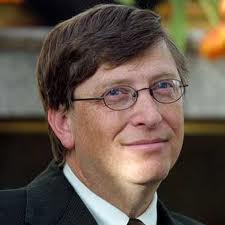Bill Gates, the co-chair of the Bill and Melinda Gates Foundation, has explained why Nigeria gets the largest intervention fund spent by the foundation in Africa.
Gates made this known during an interview session with selected journalists on the sidelines of the 2024 NutriVision Dialogue on Tuesday in Abuja.
According to him, helping reduce health inequality globally is the top priority of the foundation, including getting rid of diseases like measles, malaria, and polio.
He said, “We spend a lot in Asia, but we spend even more in Africa. The country where we spend the most in Africa is Nigeria.

“That makes sense because of the population and the incredible needs that are here. That means that I’ve literally spent billions in Nigeria.
“I’m glad that things like the child mortality rate have come down, but we could do a lot better.”
Gates emphasised that the foundation plans to increase its spending in the future, with a focus on improving primary healthcare.
“Our work is almost entirely focused on primary healthcare because the impact per dollar is dramatically greater than anywhere else,” he said.
Beyond health, Gates noted that the foundation also invests heavily in the agricultural sector, recognising that boosting agricultural productivity is crucial to Nigeria’s economic development.
He highlighted that this goal could be achieved through access to high-yield, climate-resistant seeds, fertilisers, improved and timely information, and better weather predictions for farmers.
According to him, these measures will significantly boost agricultural output and reduce food costs.
The philanthropist also stated that the foundation supports partners in implementing food fortification for staple foods, which enhances the nutritional quality of the food supply and provides public health benefits.
He stressed that access to a variety of low-cost foods, particularly milk and eggs, is crucial for reducing malnutrition.
Gates noted that the time is right to utilise innovative ideas and tools in the health and agricultural sectors to substantially reduce malnutrition.
Also Read:
- Probe: Atiku’s claims baseless, distracting – Presidency
- Gunmen kill 11 persons in Plateau
- Achimugu: EFCC speaks on reported connection to Atiku, Sanwo-Olu
- Police arrest 14 in Edo for allegedly killing 16 travellers
- Police confirm officer killed in Islamic Movement of Nigeria attack
It was learnt that the foundation, since its inception in 2000, has supported partnerships with African regional institutions, national governments, and local communities in 49 African countries.
Furthermore, the foundation contributes funding and scientific expertise in support of their agendas for change.
These partnerships, according to available information, have driven the success of numerous health, agriculture, equality, and anti-poverty initiatives.


